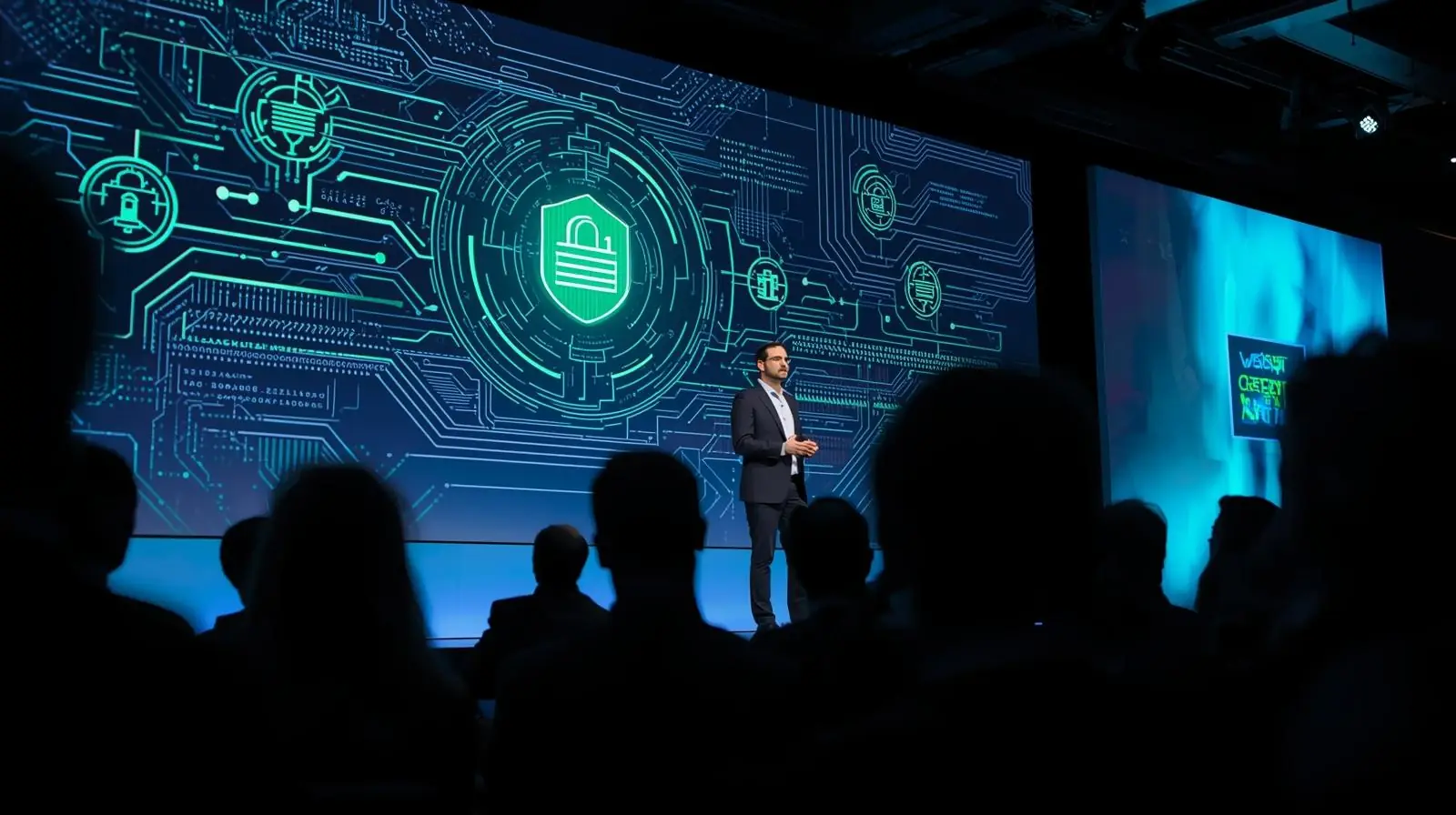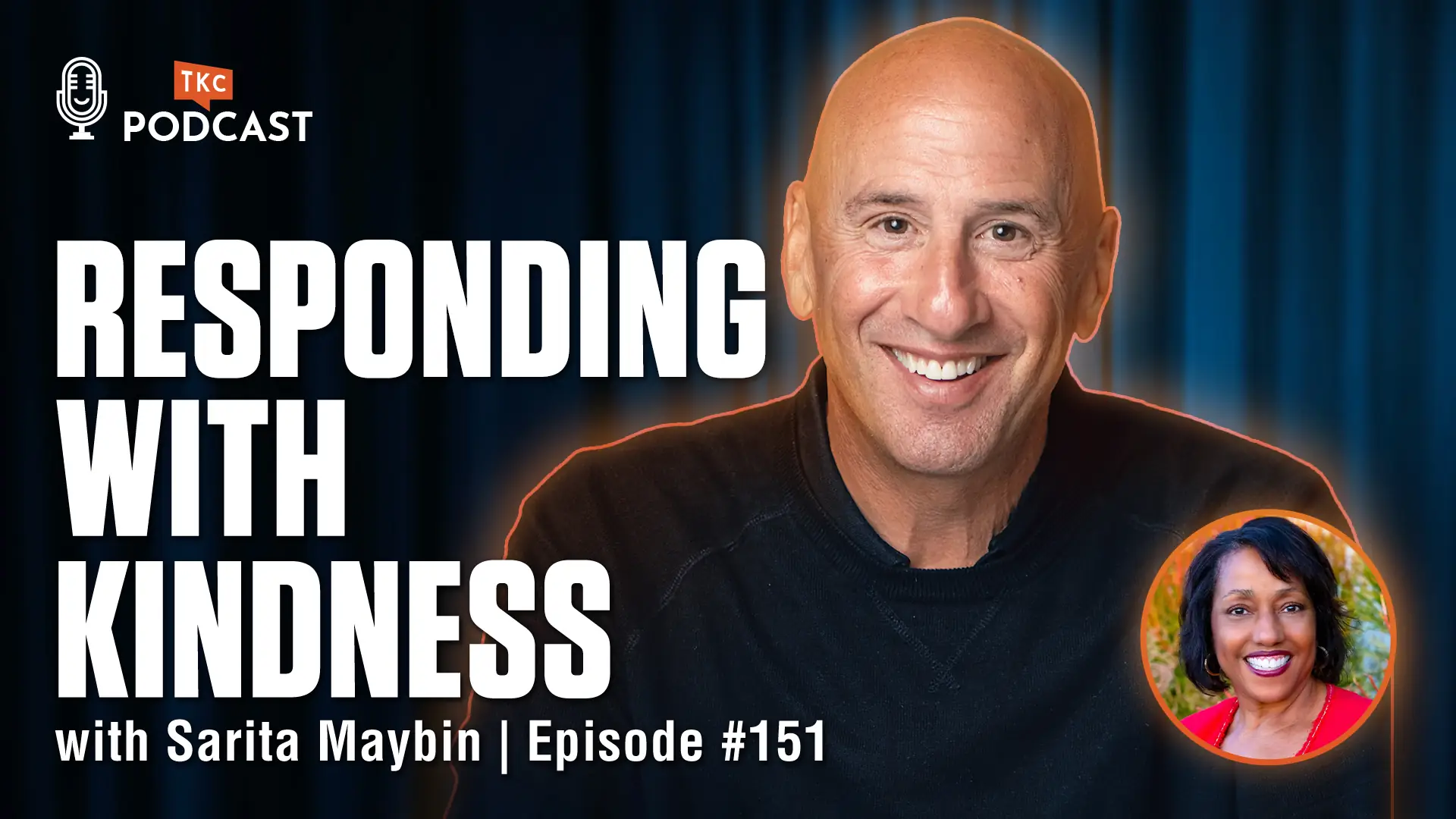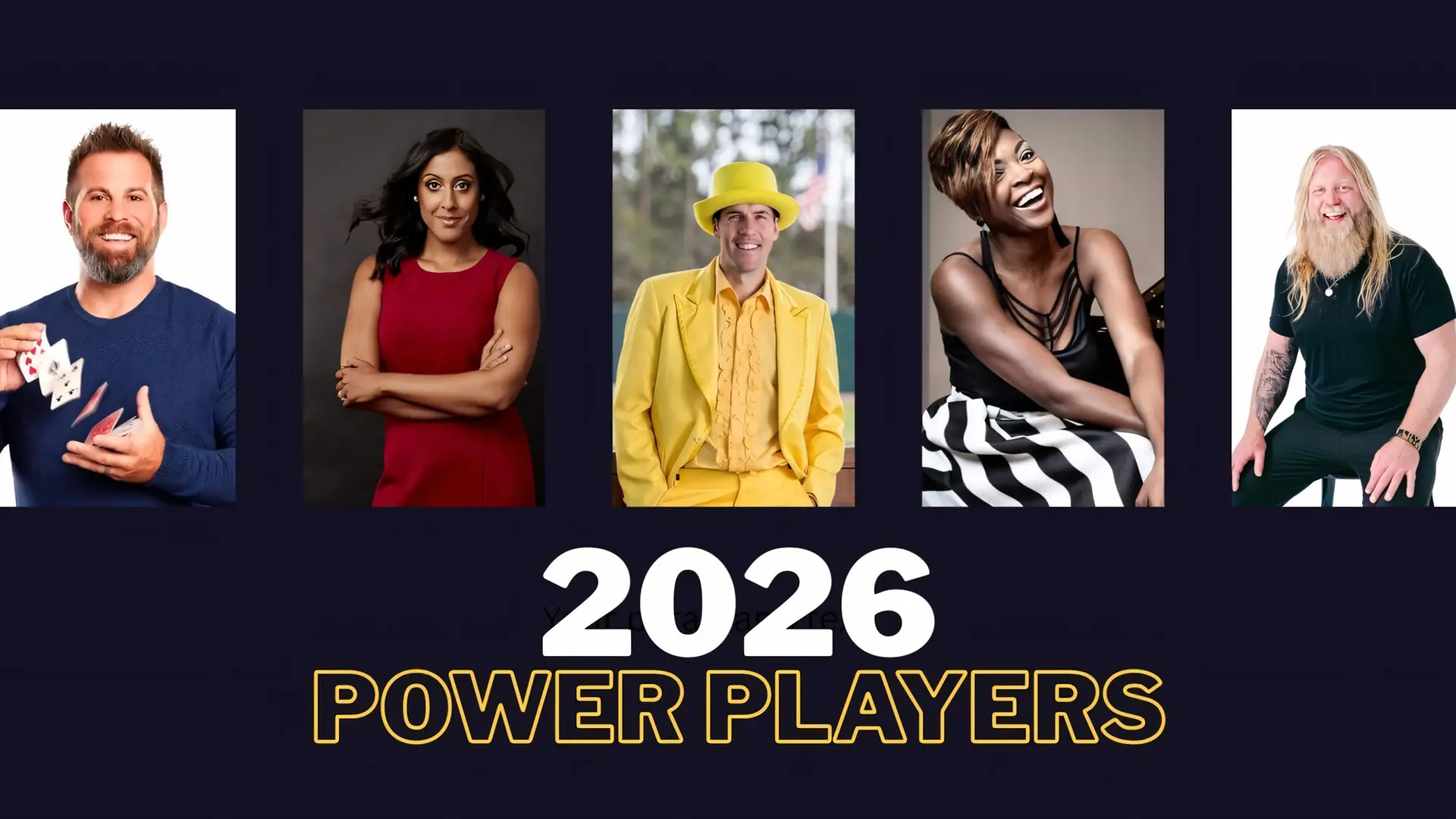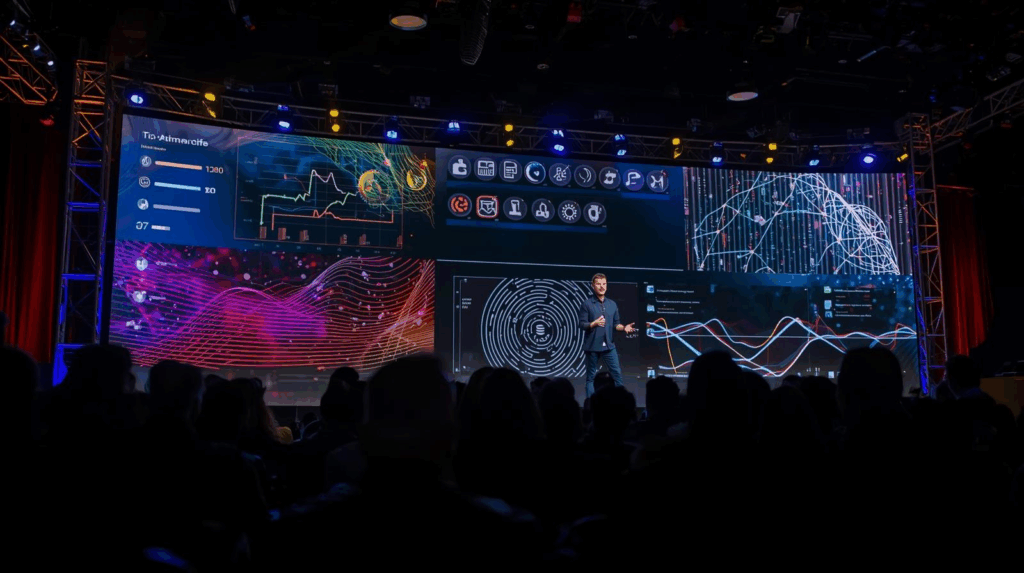
November 10, 2025How to Find Happiness by Loving the Process (And Not the Prize)
Discover how Olympic legend Apolo Ohno found happiness by prioritizing purpose over prizes and loving the journey more than the destination.
Why Chasing Results Actually Steals Your Happiness
What if everything you’ve been taught about achieving happiness is backwards? While most people fixate on crossing finish lines and hitting targets, Olympic athlete and eight-time Olympic medalist Apolo Ohno discovered something counterintuitive during his journey to becoming America’s most decorated Winter Olympian. True happiness doesn’t come from standing on podiums or closing deals; instead, it emerges when you fall in love with the daily grind itself. For meeting professionals and event planners constantly juggling deadlines and client expectations, this shift in perspective could transform not just your career satisfaction but your entire approach to life.
Apolo Ohno didn’t just win gold medals and write New York Times bestsellers by accident. As a best-selling author and successful entrepreneur, he’s spent years decoding the psychology behind sustainable achievement and genuine fulfillment. His insights reveal a fundamental truth that applies whether you’re planning a 5,000-person conference or training for the Olympics: the quality of your daily experience matters infinitely more than the fleeting moments of victory. This blog post explores how elite performance experts like Apolo have cracked the code on lasting happiness through a four-part framework that anyone can implement, regardless of their industry or goals.
? Watch and listen to the full interview about happiness & healthy habits here
The Hidden Cost of Modern Life’s Instant Rewards
Modern society has engineered an unprecedented assault on our natural reward systems. Social media notifications, food delivery apps, streaming services, and endless content feeds provide instant dopamine hits that our ancestors never experienced. However, this constant barrage of quick gratification comes with a steep price. When happiness keynote speaker Apolo Ohno analyzes contemporary challenges to wellbeing, he points to this dopamine dysregulation as a primary culprit behind why so many high achievers feel empty despite their accomplishments.
The science backs this up. Every time you grab your phone for a quick scroll or indulge in another snack you didn’t really want, you’re training your brain to expect immediate rewards for minimal effort. Consequently, when you sit down to work on that complex event proposal or spend hours coordinating vendor logistics, your brain struggles to feel motivated because the payoff seems impossibly distant. Event planners face this challenge daily as they balance long-term strategic planning with immediate crises that demand attention. The result is a workforce that feels perpetually dissatisfied, chasing the next quick fix rather than finding fulfillment in meaningful work.
Apolo observed this pattern not just in himself but across industries as he transitioned from athletic competition to business leadership and entrepreneurship. “Comparison is the thief of joy, but we live in a world where we’re competitive and having some comparable analytics is critical to understanding if we’re playing the game appropriately,” he explains. This paradox creates a tension that meeting professionals know well: you need metrics and benchmarks to gauge success, yet constantly measuring yourself against others or against idealized outcomes can drain the joy from your work. The solution isn’t to abandon goals or stop tracking progress; rather, it’s to rewire your relationship with achievement itself fundamentally.
Preserving Your Brain’s Capacity for Meaningful Motivation
The concept of dopamine preservation might sound technical, but it represents one of the most practical strategies for maintaining happiness and drive over the long haul. Think of your dopamine response system like a muscle that can either be strengthened through deliberate training or weakened through constant overuse. When you limit instant gratification sources, you’re essentially resetting your brain’s sensitivity to rewards. This means that when you do make progress on meaningful projects or reach important milestones in your event planning career, your brain can actually register and celebrate those achievements with the intensity they deserve.
For event professionals juggling multiple conferences, corporate meetings, and client demands, this preservation strategy offers a lifeline against burnout. Instead of numbing yourself with quick dopamine hits between stressful tasks, you learn to find satisfaction in the work itself. Apolo’s approach involves identifying and eliminating unnecessary sources of instant gratification while simultaneously building appreciation for incremental progress. This might mean checking social media only at designated times rather than reflexively grabbing your phone during every break, or it could involve creating small rituals that help you transition into focused work without relying on caffeine or snacks as crutch rewards.
The transformation happens gradually but profoundly. As your brain recalibrates its reward thresholds, activities that once felt tedious or overwhelming begin revealing their intrinsic satisfactions. That detailed venue walkthrough becomes an opportunity to problem-solve creatively rather than just another item to check off. The lengthy vendor negotiations turn into engaging puzzles where you flex your communication skills and build relationships. Additionally, this preserved dopamine capacity means that when you do achieve major wins, they feel genuinely thrilling rather than just momentarily pleasant before you’re already hunting for the next hit.
Falling in Love With the Daily Grind
Process-oriented thinking represents perhaps the most radical departure from conventional achievement culture. While most people ask “What do I need to accomplish?” Apolo asks, “What do I want to experience today?” This subtle shift in questioning changes everything about how you approach your work and, ultimately, your happiness. When meeting professionals adopt this mindset, they stop viewing events as isolated projects to survive and start seeing them as ongoing opportunities to practice their craft, refine their skills, and engage with the fascinating complexity of bringing people together.
The business world often celebrates outcomes while ignoring the thousands of micro-decisions and small actions that create those outcomes. Yet Apolo’s Olympic career taught him that champions distinguish themselves not through superior talent alone but through their ability to show up with enthusiasm for mundane training sessions day after day. “It’s hard to beat someone who just loves playing the game every single day,” he notes. This principle applies directly to event planning, where success depends less on occasional bursts of brilliance and more on consistent attention to detail, relationship maintenance, and creative problem-solving.
Creating this love affair with your daily routines requires intentional reframing and discovery. Start by identifying specific aspects of event planning that genuinely energize you. Perhaps you find deep satisfaction in the spatial puzzle of floor plan design, or maybe you love the detective work of finding the perfect speaker who matches your audience’s needs. Through exploring thought leadership resources and connecting with peers who share your passions, you can amplify these enjoyable elements while developing strategies to make less appealing tasks more engaging. The goal isn’t to pretend every moment is thrilling but to cultivate enough genuine appreciation for your work that you can sustain motivation without constantly needing external validation or achievement milestones.
Building Your Tribe of Process Lovers
Happiness doesn’t exist in isolation. One of Apolo’s most powerful insights involves the critical role that relationships play in sustaining both motivation and well-being. When you surround yourself with people who celebrate small wins, value daily improvement, and find joy in the work itself, you create an environment where process-oriented thinking becomes natural rather than forced. For meeting professionals, this means cultivating connections with peers who understand that a successful pre-con meeting or a smoothly executed registration process deserves recognition, not just the final applause at the closing session.
The event planning community offers tremendous potential for these quality relationships, yet many professionals remain isolated in their roles, interacting with colleagues primarily around logistics rather than shared growth. Apolo’s success in transitioning from athletics to entrepreneurial ventures stemmed partly from his ability to build networks of like-minded individuals who challenged him to stay engaged with learning rather than coasting on past achievements. Similarly, event planners who invest in communities that prioritize professional development, creative exploration, and mutual support find themselves more resilient against the inevitable stresses of the industry.
These relationships serve multiple functions in the pursuit of happiness. First, they provide accountability that keeps you focused on the process rather than just the outcomes. When you commit to a colleague that you’ll implement a new attendee engagement strategy or experiment with a novel event format, you’re more likely to follow through and find satisfaction in the experiment itself. Second, quality relationships offer perspective during challenging periods. Whereas isolation can turn setbacks into catastrophes, supportive peers help you maintain equilibrium by reminding you that growth involves setbacks and that your value extends far beyond any single event’s success or failure.
Furthermore, building these connections expands your capacity for inspirational & motivational impact. When you embody process-oriented thinking and genuine enthusiasm for your daily work, you naturally inspire others to reconsider their own approaches. This ripple effect transforms not just individual happiness but entire organizational cultures. Event planning teams led by people who love the journey create more innovative experiences, maintain better vendor relationships, and ultimately deliver greater value to their clients and attendees.
Identifying What Actually Brings You Joy
Too often, professionals accept their job descriptions as fixed realities rather than frameworks that can evolve. Apolo’s framework includes a crucial element that many achievement-focused individuals overlook: identifying and leaning into the aspects of your work that you genuinely enjoy. This isn’t about only doing easy or comfortable tasks; rather, it’s about recognizing which challenging activities energize you versus which ones merely drain you. For event planners, this distinction might mean discovering that you love the creative brainstorming phase but find budget spreadsheets tedious, or conversely, that you find deep satisfaction in financial optimization but dread networking receptions.
Understanding your unique joy drivers allows you to structure your role and your days more intentionally. While you can’t eliminate all unpleasant tasks, you can often adjust ratios, delegate strategically, or reframe necessary duties in ways that connect them to elements you find genuinely engaging. Perhaps financial management feels burdensome until you reframe it as a creative constraint that pushes innovative solutions. Maybe vendor negotiations become more enjoyable when you approach them as opportunities to practice storytelling skills and build meaningful business relationships rather than merely transactions to complete.
This identification process requires honest self-reflection and often benefits from external input. Discuss with mentors, colleagues, or coaches about which aspects of your work seem to put you in flow states versus which consistently feel like uphill battles. Experiment with different approaches to standard tasks and notice which variations feel more satisfying. Track your energy levels throughout typical workdays to identify patterns between activities and your sense of well-being. Over time, these insights enable you to craft a professional life that aligns increasingly well with your natural inclinations and sources of happiness.
The business case for this approach extends beyond personal satisfaction. When you lean into work elements you genuinely enjoy, you naturally develop deeper expertise and deliver higher quality results. Event planners who love design create more visually stunning and functionally excellent experiences. Those who enjoy relationship-building maintain stronger vendor partnerships that provide competitive advantages. Professionals passionate about attendee experience innovate engagement strategies that set their events apart. Thus, pursuing happiness through enjoyment isn’t selfish; it’s a strategic approach that benefits everyone involved.
Rewriting Your Success Story
The traditional narrative around professional success follows a predictable pattern: set ambitious goals, work tirelessly toward them, achieve the objective, celebrate briefly, then immediately establish the next target. This cycle creates what psychologists call the “hedonic treadmill,” where happiness remains perpetually just beyond reach. Apolo’s alternative narrative challenges this exhausting pattern by suggesting that success isn’t a destination but rather a quality of experience you can access daily regardless of where you stand relative to your ultimate goals.
Consider how this reframe transforms the event planning profession. Instead of measuring success solely by the number of attendees, revenue generated, or client renewals secured, you begin evaluating success through questions like: Did I engage fully with today’s challenges? Did I learn something new about my craft? Did I build or strengthen relationships that matter to me? Did I find moments of genuine enjoyment in my work? These questions don’t replace traditional metrics but complement them, creating a more holistic and sustainable definition of professional achievement that supports ongoing happiness rather than undermining it.
This expanded success definition particularly benefits meeting professionals because events themselves are ephemeral. You invest weeks or months planning an experience that exists for hours or days before disappearing. If happiness depends entirely on the event’s flawless execution and glowing feedback, you’re setting yourself up for disappointment because no event is perfect, and satisfaction fades quickly. However, when happiness connects to the daily practice of event planning itself, you’ve created a renewable resource that sustains you through both triumphs and setbacks.
Apolo’s journey from Olympic competition to entrepreneurship illustrates this principle beautifully. His athletic achievements provided extraordinary peak experiences, but couldn’t sustain ongoing happiness. Similarly, his bestselling books delivered satisfying accomplishments but not lasting fulfillment. What has sustained him through decades of high-performance living is the capacity to find genuine engagement in whatever challenge he’s currently tackling. For event planners looking to build similarly resilient careers, this lesson proves invaluable: invest in falling in love with the work itself, and happiness becomes a companion on the journey rather than a prize at the destination.
The Competitive Advantage of Joy
While the happiness framework Apolo teaches might sound focused purely on personal well-being, it actually delivers significant competitive advantages in professional contexts. Event planners who genuinely love their daily work consistently outperform peers who view events as obligations to endure. This performance gap emerges not from superior talent or greater effort but from the sustainable motivation and creative energy that joy provides. When you’re excited about solving the puzzle of attendee engagement or figuring out how to maximize a limited budget, you bring curiosity and innovation that exhausted professionals simply cannot match.
The sales implications of this approach deserve particular attention. Potential clients can sense the difference between planners who are going through the motions and those who are genuinely enthusiastic about creating extraordinary experiences. When you radiate authentic passion for your work rather than just professional competence, prospects trust you more deeply and feel confident that you’ll bring creativity and dedication to their events. This emotional connection often proves more decisive in winning contracts than portfolio size or price competitiveness.
Furthermore, happiness-focused professionals build more effective teams. When you model process-oriented thinking and find daily satisfaction in your work, you create organizational cultures where people feel permission to enjoy their jobs rather than just survive them. Event teams operating from this foundation demonstrate greater resilience during crisis moments, maintain better relationships with vendors and venues, and generate more innovative solutions to complex challenges. The cumulative effect transforms organizations from functional but draining to genuinely inspiring places where people want to contribute their best thinking.
The parallel to Apolo’s Olympic success becomes clear when you consider how he approached competition. He didn’t win eight medals by suffering more than his competitors or by being uniquely talented. Rather, he won because he sustained peak performance over the years by genuinely loving the daily training process. Event planners face a similar reality: long-term success requires sustained excellence over decades, and that sustainability only comes through finding joy in the journey rather than just celebrating occasional destination moments.
Practical Implementation for Busy Professionals
Transforming your relationship with happiness and achievement sounds inspiring in theory but can feel daunting when you’re managing multiple events simultaneously while dealing with demanding clients. The key to successful implementation involves starting small and building gradually rather than attempting wholesale life transformation overnight. Begin by identifying one aspect of your daily routine where you can apply Apolo’s principles, perhaps your morning planning session or your approach to vendor communications.
For dopamine preservation, consider conducting a one-week audit of your instant gratification habits. Track every time you reach for your phone without a specific purpose, grab a snack when not actually hungry, or switch tasks to avoid something slightly uncomfortable. This awareness alone often reduces these behaviors significantly. Then, choose one or two habits to modify, replacing them with brief moments of mindfulness or intentional focus on whatever task you’d been avoiding. Event planners who implement even modest dopamine preservation report feeling more present during site visits, more creative during brainstorming sessions, and more satisfied after completing complex projects.
Building process love requires experimenting with reframes and rituals that help you connect with the inherent satisfaction in your work. If budget management feels like drudgery, try treating it as a creative challenge where you’re the hero, finding innovative solutions within constraints. If vendor negotiations drain you, approach each conversation as an opportunity to practice communication skills you’re developing. Create pre-work rituals that help you transition into focused engagement, whether that’s a specific playlist, a brief meditation, or simply taking three deep breaths while stating your intention for the upcoming task.
The relationship component might involve reaching out to one or two peers you respect and proposing regular check-ins focused on process and growth rather than just logistics. Share challenges you’re working through and celebrate small wins together. Consider joining or forming a mastermind group of event professionals committed to sustainable excellence rather than just survival. Engage more actively with industry communities that prioritize development and support, perhaps through organizations that emphasize thought leadership and continuous learning.
When the Finish Line Finally Arrives
Perhaps counterintuitively, becoming less attached to outcomes often leads to better results. When event planners genuinely love the planning process itself, they make better decisions because they’re not desperately chasing specific outcomes. They negotiate more effectively with vendors because they’re genuinely curious about creating value for everyone rather than just minimizing costs. They design more engaging attendee experiences because they’re excited about the creative challenge rather than just checking boxes on client requirements.
This doesn’t mean goals become irrelevant or that you stop caring about results. Apolo certainly cared deeply about Olympic medals and business success. The difference lies in where you locate your happiness and how you define progress. When happiness depends primarily on outcomes, you’re vulnerable to circumstances beyond your control and susceptible to the hedonic treadmill. When happiness connects to daily engagement with meaningful work, you’ve created resilience against setbacks and sustainability through long careers.
Event planners who master this balance find that career longevity becomes natural rather than forced. Instead of burning out after a decade and switching industries, they’re still finding satisfaction and innovation in event planning twenty or thirty years later. They become the industry veterans who younger professionals seek out not just for technical knowledge but for wisdom about sustaining passion and avoiding cynicism. They’re the meeting professionals who continue bringing fresh ideas to clients because they haven’t exhausted their enthusiasm through purely outcome-focused thinking.
The irony is that many people resist process-oriented thinking because they worry it will reduce their competitive drive or achievement levels. Yet the evidence from elite performers like Apolo suggests exactly the opposite. “It’s hard to beat someone who just loves playing the game every single day,” he reminds us. When you genuinely enjoy your work, you naturally invest more hours, bring more creativity, and maintain higher standards than someone pushing through with pure willpower. The sustainable high performance that creates extraordinary careers doesn’t come from relentless goal fixation but from finding joy in daily practice.
Your Next Steps Toward Sustainable Happiness
The journey from outcome-obsessed to process-oriented thinking doesn’t happen overnight, nor does it follow a linear path. You’ll have days when deadlines and pressures push you back into old patterns of future-focused anxiety or comparison-driven dissatisfaction. That’s not failure; it’s normal. What matters is developing the awareness to recognize when you’ve drifted from process appreciation and the skills to gently redirect yourself back toward engagement with your current experience.
Meeting professionals who successfully implement this framework report profound transformations not just in their work satisfaction but across their entire lives. When you learn to find happiness in daily routines and incremental progress professionally, you naturally apply these same principles to health goals, relationship development, creative hobbies, and personal growth. The skills transfer because they address fundamental human psychology rather than industry-specific challenges.
Moreover, this approach to happiness proves remarkably resilient during industry disruptions or personal setbacks. When the pandemic canceled events worldwide, process-oriented planners adapted more successfully than outcome-focused peers because they could find satisfaction in learning new virtual event technologies and maintaining client relationships even when traditional events weren’t possible. When personal challenges emerge, the capacity to find joy in daily routines provides stability that outcome-dependent happiness cannot match.
Apolo’s framework offers meeting professionals a roadmap for building careers that sustain rather than deplete, that energize rather than exhaust, and that provide genuine happiness rather than fleeting satisfaction. By preserving dopamine sensitivity, falling in love with daily routines, cultivating quality relationships, and identifying truly enjoyable work elements, you create a professional life that feels rewarding not just when you’re receiving awards or accolades but during the ordinary Tuesday afternoon when you’re solving logistical puzzles that no one else will even notice.
Create Events That Reflect Your Joy
The ultimate test of this happiness framework appears in the experiences you create for others. Event planners who genuinely love their work produce fundamentally different events than those who are just executing contracts. When you’re engaged and energized by your daily practice, that enthusiasm infuses every decision from speaker selection to break timing to attendee engagement strategies. Participants can feel the difference between events planned by someone going through professional motions and those crafted by someone who finds genuine satisfaction in creating meaningful experiences.
This connection between planner happiness and event quality has important implications for how you approach client relationships and contract negotiations. Instead of accepting every project regardless of alignment, you become more selective about opportunities that allow you to practice the aspects of event planning you genuinely enjoy. This selectivity might feel risky initially but ultimately creates a portfolio of work that sustains rather than drains you. Clients also benefit because they’re working with a planner who’s genuinely excited about their event rather than someone forcing enthusiasm.
The event industry needs more professionals who embody this approach. As automation and AI handle increasing portions of logistical execution, the human value proposition for meeting planners increasingly centers on creativity, strategic thinking, and the ability to design experiences that genuinely connect with attendees. These capabilities flourish in professionals who love their work and wither in those who are just surviving. By prioritizing your own happiness through process-oriented thinking, you’re not being selfish; you’re developing the very qualities that will define professional success in the industry’s future.
Women leaders in the event industry particularly benefit from this framework, as they often face additional pressures around proving competence and managing work-life integration. Process-oriented thinking provides a sustainable alternative to the perfectionism and overwork that leads to burnout. When happiness comes from daily engagement rather than external validation, you become less vulnerable to the comparison traps and imposter syndrome that plague many high-achieving professionals.
The Compound Interest of Daily Joy
Financial advisors often speak about compound interest as the eighth wonder of the world, where small regular investments grow exponentially over time. The same principle applies to happiness through process-oriented thinking. Each day that you find genuine satisfaction in your work, you’re making a small deposit in your wellbeing account. These deposits compound over weeks, months, and years into extraordinary resilience, creativity, and fulfillment that purely outcome-focused approaches can never achieve.
For event planners building long-term careers, this compounding effect becomes particularly valuable. The industry’s cyclical nature means you’ll face both peak busy seasons and quieter periods, successful events and challenging failures, enthusiastic clients and difficult stakeholders. Process-oriented happiness provides ballast through these inevitable fluctuations because your satisfaction doesn’t hinge entirely on external circumstances. You can find engagement in planning tasks during slow periods just as you find it during intense execution phases.
This stability transforms how you navigate career decisions and professional development. Instead of chasing titles, compensation increases, or prestigious clients as primary sources of validation, you evaluate opportunities based on whether they’ll allow you to spend more time on work aspects you genuinely enjoy. This might mean accepting a role with a smaller organization because it offers greater creative freedom, or it could involve specializing in a particular event type because you find that niche deeply satisfying. Career paths guided by joy rather than just ambition often lead to unexpected and fulfilling destinations.
Transform Your Relationship With Success
The conversation around happiness and achievement in professional contexts often positions these as competing priorities: you can either be successful or happy, but pursuing both simultaneously represents naive optimism. Apolo’s career and teaching directly challenge this false dichotomy. His Olympic achievements came not despite his love for daily training but because of it. His business success stems not from gritting through unpleasant work but from finding ventures that engage his curiosity and passion. His influence as a speaker grows because audiences sense authentic enthusiasm rather than rehearsed motivation.
Meeting professionals stand at a similar crossroads. You can continue approaching your career as an endless series of obstacles to overcome and goals to chase, finding brief satisfaction when things go well but spending most of your time feeling stressed or dissatisfied. Alternatively, you can embrace the radical proposition that happiness isn’t something you earn through achievement but something you cultivate through your daily relationship with work itself. The path you choose will shape not just your emotional experience but your actual professional outcomes over decades.
The beauty of this framework is its accessibility. You don’t need to wait until you’ve achieved certain milestones or accumulated specific credentials to start implementing process-oriented thinking. Beginning today, you can start noticing which aspects of your work genuinely engage you, limiting unnecessary dopamine depletion, seeking out relationships with peers who share your values, and reframing daily tasks as opportunities rather than obligations. Each small shift accumulates into meaningful transformation over time.
Moving Forward With Intention
Happiness isn’t something that happens to you when circumstances align perfectly; it’s a skill you develop through intentional practice and perspective shifts. The framework that Apolo Ohno teaches draws on his experience reaching the pinnacle of athletic achievement and then building multiple successful careers afterward. For meeting professionals navigating an industry that demands creativity, resilience, and sustained excellence, these lessons offer a sustainable alternative to the hustle culture that leads to burnout and cynicism.
The four-part approach—preserving dopamine, loving daily processes, cultivating quality relationships, and identifying genuinely enjoyable work elements—provides concrete starting points for transformation. You don’t need to master all four simultaneously. Pick one element that resonates most strongly and commit to experimenting with it for the next month. Notice what shifts in your experience, energy levels, and satisfaction. Adjust your approach based on what you discover, then gradually expand to incorporate additional elements.
Remember that this isn’t about achieving perfect happiness or eliminating all stress and challenges from your professional life. Event planning will always involve difficult clients, logistical nightmares, and pressure-packed moments. The goal is building resilience and finding satisfaction that sustains you through inevitable difficulties rather than depending entirely on everything going smoothly. When you derive happiness primarily from your engagement with daily work rather than external validation, you’ve created an internal resource that serves you throughout a long, fulfilling career.
Ready to Bring This Energy to Your Next Event?
The insights that happiness keynote speaker Apolo Ohno shares about sustainable achievement and genuine fulfillment can transform not just individual careers but entire organizational cultures. Whether you’re planning a corporate conference, association meeting, or industry event, bringing in speakers who help your attendees develop process-oriented thinking creates lasting value that extends far beyond the event itself.
Book Apolo Ohno to inspire your audience with authentic stories of Olympic excellence and entrepreneurial success grounded in loving the journey.
Schedule a consultation to discuss how the right keynote speaker can elevate your event and deliver genuine transformation for attendees.
Explore our speaker roster to find thought leaders who specialize in resilience, performance, and sustainable success across industries.
Contact our team with questions about speaker selection, event strategy, or how to create experiences that genuinely inspire lasting change.
Watch the full interview to dive deeper into Apolo’s framework for finding happiness through purpose and process.
Discover More Insights
Get in TouchContact US
Fill out the form so we can best understand your needs.
A representative from The Keynote Curators will reach out to you.








